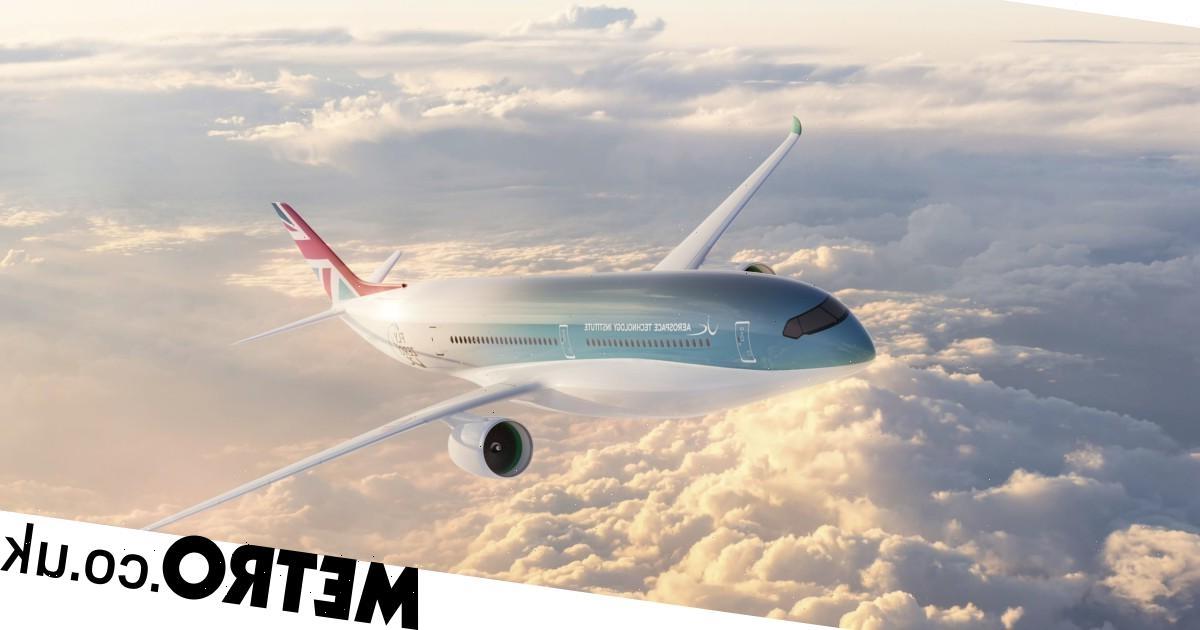A liquid hydrogen-powered plane is being developed in an attempt to operate non-stop zero carbon transatlantic flights.
The midsize aircraft is being designed to carry 279 passengers at the same speed and comfort as today’s airliners.
It is hoped it could fly from London to San Francisco on the west coast of the US without stopping, or from London to New Zealand with one refuelling stop.
The only waste product from using liquid hydrogen as a fuel is water.
The plane is being developed through the £15 million Government-funded FlyZero project led by the Aerospace Technology Institute, based in Cranfield, Bedfordshire.
The initiative’s director Chris Gear said: ‘At a time of global focus on tackling climate change, our midsize concept sets out a truly revolutionary vision for the future of global air travel keeping families, businesses and nations connected without the carbon footprint.
‘This new dawn for aviation brings with it real opportunities for the UK aerospace sector to secure market share, highly skilled jobs and inward investment, while helping to meet the UK’s commitments to fight climate change.’
Designs of the aircraft have been unveiled ahead of the fourth meeting of the Jet Zero Council, which is chaired by Transport Secretary Grant Shapps and features ministers and aviation leaders working together with the aim of reducing the sector’s carbon emissions.
Mr Shapps said: ‘As we build back greener, it’s crucial that we place sustainability at the heart of the aviation industry’s recovery from Covid-19.
‘This pioneering design for a liquid hydrogen-powered aircraft, led by a British organisation, brings us one step closer to a future where people can continue to travel and connect, but without the carbon footprint.’
He added: ‘I will continue to work closely with the Jet Zero Council to support the UK’s world-leading research in this sector, which will create green jobs, help us meet our ambitious net zero targets and lead the global transition to net zero aviation.”
Business Secretary Kwasi Kwarteng said: ‘These designs could define the future of aerospace and aviation. By working with industry, we are showing that truly carbon-free flight could be possible, with hydrogen a front runner to replace conventional fossil fuels.
‘Fuelling planes sustainably will enable the public to travel as we do now, but in a way that doesn’t damage the planet.
‘It will not only help us to end our contribution to climate change, but also represents a huge industrial opportunity for the UK.’
Source: Read Full Article


